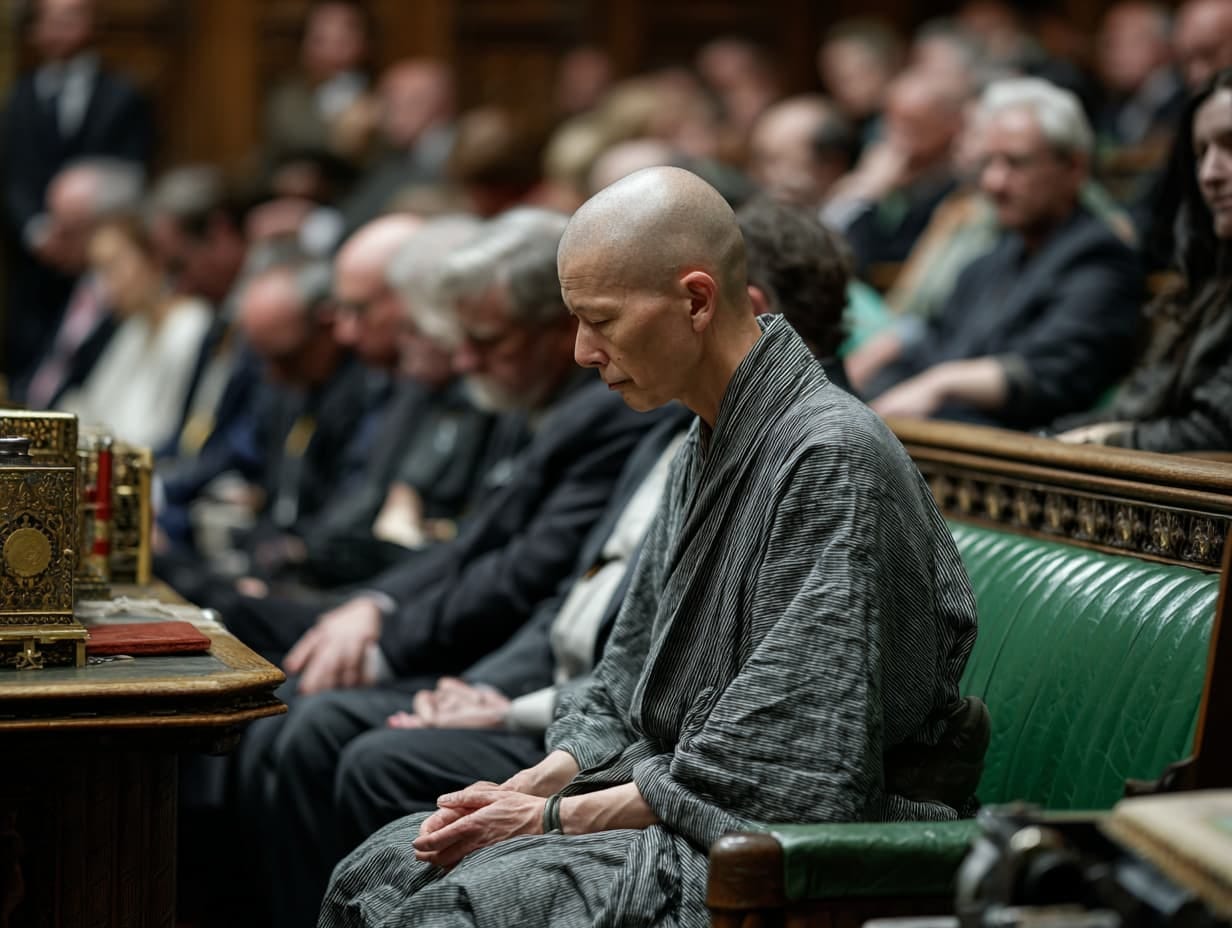In this latest episode of House of Life, we tackle one of the most fundamental questions of our time: is it possible to fix governance, and if we can't come up with alternatives, do we have the right to criticise what we have?
The problem with representative democracy
We start by examining why our current system feels broken. Representative democracy — where we elect people to make decisions for us — consistently fails to deliver what people actually need. Politicians get institutionalised, lose touch with their constituents, and the whole thing devolves into the theatrical nonsense you see at Prime Minister's Questions.
As Tom points out, what we call "democracy" today might actually be closer to what Plato warned about: demagogy. Charismatic leaders making empty promises while serving their own interests of wealth and power. Sound familiar?
An alternative for today’s world
Instead of electing representatives who ignore us, what if we had a system where people directly participate in decision-making through informed deliberation? Think ancient Athenian democracy, but updated for the digital age and without the slavery and disenfranchisement of women.
The key insight from philosophers like Habermas: you can achieve genuine consensus through "reasoned dialogue and deliberation under ideal conditions" - where people can freely question any position, express any view, and engage without coercion. The catch? People need to be informed, engaged, and willing to have everything on the table for discussion.
The adapter pattern
Here's Asim's wild proposal: create a political party where the MPs are literally human placeholders. They shave their heads, wear identical clothes, change their names to numbers like "29.3", and have zero personality. Their only function is to walk into the correct voting corridor in Parliament and execute the will of the people.
The real decision-making happens through participatory consensus among citizens, aided by AI to synthesize discussions and find common ground. The MPs are contractually bound to vote exactly as the membership decides, with automatic expulsion for any deviation.
It's like the adapter pattern in software engineering - you need something that can interface with the existing broken system while running completely different logic underneath.

The technology stack
We dive into how this could actually work using current technology:
Voice-to-text input (people speak more honestly than they write)
AI analysis to identify points of agreement, disagreement, and outlier opinions
Structured deliberation focusing discussion time on areas of disagreement
Transparent, open-source systems to build trust
Personal AI assistants that could eventually represent your views on routine matters
Beyond problem-solving to collective vision
One of the most compelling ideas we explore: instead of just reacting to problems, what if we used this system to crowdsource collective visions for the future? What kind of community do we want Malvern or Crawley to be? What future do we want for the UK? What do we want for our global society?
Having that shared vision would give the AI system a north star for evaluating decisions - not just solving today's crises, but moving incrementally toward the future people actually want.
The Fundamental Problem
But here's where we hit the wall: even if you fix the governance system, execution of decisions isn't guaranteed. Banks, corporations, and other power centres can simply say "computer says no" and crash the economy if they don't like what the people decide.
This reveals a deeper truth - maybe there's never been real governance of any form. Maybe it's all theatre, and the reason governments don't do what we want isn't incompetence, but powerlessness against other systems.
Despite these challenges, this kind of mass participatory system could still pull back the curtain on power imbalances and wake people up to how the world actually works. And sometimes, when illusions shatter, amazing transformations become possible.
What's Next?
Would this actually work? Could it start small at the local level and scale up? How do we prevent it from being co-opted by the very interests it threatens?
We don't have all the answers, but we've sketched out a framework that could be built, tested, and evolved. The question is: are we ready to try?
Listen to the episode and let us know what you think in the comments.
House of Life is a podcast exploring big questions about technology, society, and human flourishing. Hosted by Tom Greenwood and Asim Hussain.












